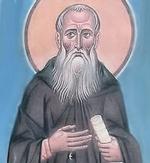Pope Leo XIV: the first American Pontiff!
May 08, 2025
Cardinal Robert Prevost, the American-born missionary who had served for years in Peru before being named prefect of the Dicastery for Bishops, has been elected as Roman Pontiff, choosing the name Pope Leo XIV.
White smoke billowed out of the chimney on the roof of the Sistine Chapel shortly after 1 pm (Rome time) on May 8, indicating that the College of Cardinals had elected a new successor to St. Peter—apparently on the fourth ballot of their conclave. More than an hour later, Cardinal Dominique Mamberti, the protodeacon of the College, appeared on the loggia of St. Peter’s basilica to introduce the new Pontiff to a cheering crowd.
Born in Chicago in 1955, the future Pope entered the Augustinian order in 1977 and was ordained to the priesthood in 1982. In 1985 he became a missionary in Peru, where he served as a pastor, diocesan chancellor, and seminary rector, eventually becoming Bishop of Chiclayo in 2015 and an active member of the Peruvian bishops’ conference. This missionary work was interrupted by service within the Augustinian order: first as vocation director, then as provincial, and finally as prior general of the order.
In 2023 he was called to Rome to become prefect of the powerful Dicastery for Bishops. He received his red hat from Pope Francis at the consistory of September 2023.
Trained as a canon lawyer (with a doctorate from the Angelicum), the new Pontiff has maintained a low profile in Rome, and did not appear at the top of early listings of papabili after the death of Pope Francis. But his name was mentioned frequently in the last days leading up to the conclave, raising speculation that he might emerge as a compromise candidate if more liberal prelates could not command the necessary two-thirds majority. His relatively quick election—after many seasoned Vatican-watchers had predicted a lengthy conclave—suggests that the speculation was on target.
The new Pope has not figured prominently in public disputes that have roiled the Catholic Church in recent years. But he has spoken out clearly against abortion and gender ideology, and opposed the drive for female ordination as “clericalizing women.” He expressed some sympathy for the move by Pope Francis, in Amoris Laetitia, to allow for divorced-and-remarried Catholics to receive the Eucharist, but he hesitated at Fiducia Supplicans, saying that blessings for same-sex couples would suggest support for “beliefs and practices that contradict the Gospel.” He has supported the late Pope’s quest for a “synodal” Church. On political issues he has taken more conventionally liberal stands, supporting immigration (and chiding Vice President J.D. Vance for his interpretation of the ordo amoris), and in 2020, while stationed in Peru, joined in mourning the death of George Floyd and calling for an end to racial hatred.
Pope Leo was brought to prominence by Pope Francis—who had brought him to Rome, naming him head of a powerful dicastery before he become an archbishop. And a conclave dominated by cardinals that Pope Francis had appointed was unlikely to reject his legacy. Yet in his first appearance before the noisy crowd in St. Peter’s Square, he distanced himself from his predecessor in a small but significant way, wearing the mozzetta and stole that Pope Francis had pointedly declined. (Another indication of differences—at least in style—will come if Pope Leo chooses to move into the apostolic palace, in the papal suite that Pope Francis eschewed.)
During his tenure as head of the Chiclayo diocese, Bishop Prevost came under criticism for his handling of sex-abuse charges against two priests there. The diocese responded that the bishop had handled the charges properly: meeting with the priests’ accusers, urging them to bring their charges to civil authorities, investigating the charges, and sending the results of that investigation to the Vatican for further action. (The diocese has offered documentation for these actions.) But just before the May 2025 consistory, critics of Cardinal Prevost charged that the diocese in Peru had offered to pay the accusers for their silence. The College of Cardinals apparently found the charges against Cardinal Prevost unpersuasive. However it is inevitable that those charges will be scrutinized again, and repeatedly, during his pontificate.
”Peace be with you all,” the new Pope said, in his first appearance on the loggia of the Vatican basilica. He introduced himself to the crowd as an Augustinian, adding: “For you I am a bishop; but with you I am a Christian.” Later in his brief address—which was interrupted repeatedly by applause—he switched to Spanish to acknowledge the people of his former diocese in Peru.
Until recently it might have been almost inconceivable that an American would be named the Sovereign Pontiff. But the new Pope’s fluency in different languages, his long years in missionary service, and his strong identification with the Church in Latin America make him appear as a universal Pontiff.
For all current news, visit our News home page.
All comments are moderated. To lighten our editing burden, only current donors are allowed to Sound Off. If you are a current donor, log in to see the comment form; otherwise please support our work, and Sound Off!







